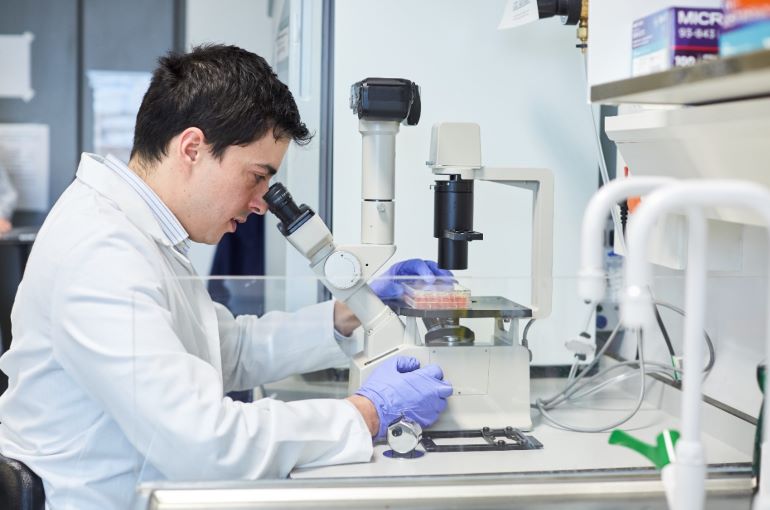Our strategy
Read our BHF strategy which aims to stop heart disease, save more lives, and provide care and support to everyone living with heart disease.

In 1961 cardiovascular diseases caused more than half of all deaths in the UK. But no one really understood the underlying causes, and there was very little research being done to find the answers.
A handful of concerned cardiologists wanted to change this, and joined forces with generous donors to create the British Heart Foundation (BHF), officially founded in July 1961. Our primary purpose, which is still the case today, was to raise money to fund “medical and scientific research relating to diseases of the heart and circulation” and improve their treatment. By 1962 the BHF had raised £170,000 – the equivalent of £3.4 million today – and had awarded its first research grants.
Since our early years, our BHF Professors have been at the core of the research we fund. These are some of the top researchers in the UK, internationally recognised for their research, who build talented teams and create a solid foundation for the future. So far there have been over 80 BHF Professors, and for the past decade we have supported around 30 Professors at any one time. They have been selected not only for their outstanding talents but also to stimulate research from a range of areas - from better understanding of the heart and blood vessels, to large studies of population health of the, to advances in heart surgery, and carrying out clinical trials to find better treatments.
From its beginning the BHF has steadily increased its influence in shaping cardiovascular research. For the past decade and more, we’ve been the biggest non-commercial funder of heart and circulatory disease research in the UK.
Currently we fund the salaries of well over half of the cardiovascular researchers in the UK, at all stages in their career – a total of more than 1,700 people. We have also provided grants for specialist equipment (such as scanners) or to support new research laboratories being built. In the last few years, before Covid-19 struck, we were able to invest around £100 million a year into new research. The impact of the pandemic meant our research funding was cut in half for 2020/21, but we are hoping this will grow again in the coming years, thanks to the generosity of our supporters.
We also help cardiovascular researchers to create new links with other scientists (such as engineers and chemists) who can bring new ideas and new methods to the field of heart and circulatory disease research. We did this by creating Research Excellence Awards in 2008. These major awards are now held by six universities across the UK.
Since 2013 we’ve funded three Centres for Regenerative Medicine that link together all the major UK researchers working to find ways to repair or regenerate damaged hearts and blood vessels. And in 2019 we created the BHF Data Science Centre, in partnership with Health Data Research UK, whose aim is to lead the way in driving the use of health data for cardiovascular research.
The impact of our research on the prevention, diagnosis and treatment is visible in almost every area of heart and circulatory disease. None of these achievements could have been realised without the passion, dedication and perseverance of our researchers. These achievements would have been impossible without our supporters who raise the money needed to carry out our vital research.
Since we were established in 1961, the annual number of deaths from heart and circulatory diseases in the UK has halved, thanks in large part to improved diagnosis, prevention and treatment.
But heart and circulatory diseases still kill 1 in 4 in the UK and remain the world’s biggest killers, killing around 19 million people globally each year. And more than half of us will get a heart or circulatory disease in our lifetime. So there is plenty left to do. We want to keep supporting pioneering research and life-saving breakthroughs over the next 60 years of the BHF.
First published 16 June 2021